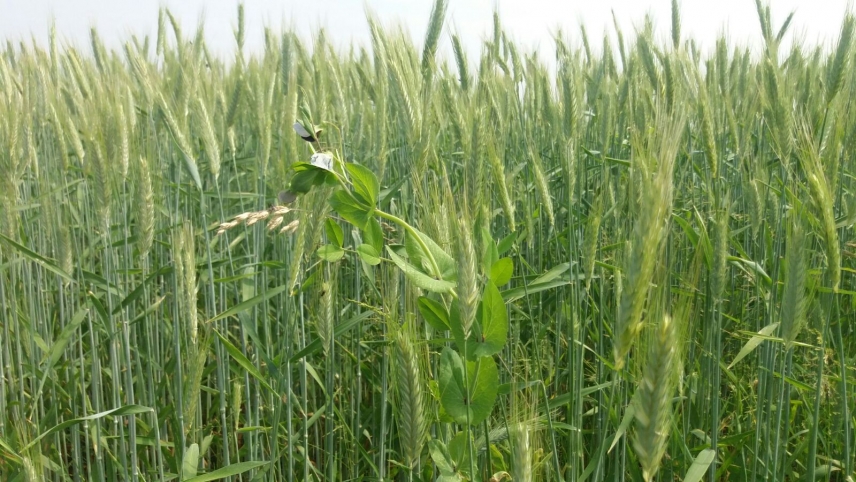La comunidad científica europea une fuerzas en torno a la diversificación de cultivos
Escrito por UCC+iVarios grupos de investigación buscan aumentar la sostenibilidad de la agricultura europea compartiendo estrategias y herramientas
El peso del sector de la agricultura en Europa y la necesidad de afrontar los problemas que hacen que este sector no sea sostenible ni económica ni medioambientalmente es parte del caldo de cultivo que motiva la financiación de proyectos que investiguen en esta línea.
La inteligencia artificial llega a las comunidades de regantes para ahorrar agua
Escrito por UCC+iUn grupo de investigación de la Universidad de Córdoba desarrolla un modelo basado en técnicas de inteligencia artificial capaz de predecir cuánta agua usará cada regante
La agricultura consume un 70% del agua a nivel global y presenta una tendencia al ascenso en cuanto a necesidades hídricas. En este escenario en el que, además, la demanda por parte de otros sectores de la industria también va en ascenso y los efectos del cambio climático influyen en la progresiva escasez de agua, las medidas de ahorro se presentan como un reto ineludible si se quiere mantener el sector y preservar la vida.
La Universidad de Córdoba, coproductora del magazine ‘Universo sostenible’ de CRUE y TVE
Escrito por UCC+IHoy se estrena el nuevo magazine transmedia coproducido por 27 Universidades españolas, a iniciativa del grupo de trabajo de Audiovisuales y Multimedia de Crue Comunicación de las Universidades Españolas, con la colaboración de FECYT y Microsoft
Televisión Española estrena hoy la primera coproducción transmedia realizada por 27 Universidades españolas bajo el título “Universo Sostenible”. La serie presentada por Crue Universidades Españolas se emitirá dentro del programa “La aventura del saber” de la 2. Las primeras emisiones responderán a las preguntas: ¿El futuro es accesible?, ¿Es una red segura? o Cáncer, ¿una enfermedad crónica?, entre otras. La multidifusión digital se realizará además a través de contenedores de Internet, websites universitarias y redes sociales. La Universidad de Córdoba participará concretamente en los capítulos dedicados al cáncer, a la alimentación, a las playas, la nanotecnología y a la educación, que se emitirán a partir del 15 de septiembre.
Las leguminosas se cuelan en los campos italianos de trigo y tomate
Escrito por UCC+iEl proyecto europeo Diverfarming ensaya la diversificación de cultivos en cinco terrenos experimentales en Italia
Aquellas personas que se dedican a la agricultura en Italia tienen que afrontar cada vez más problemas medioambientales como las bajas concentraciones en materia orgánica en sus suelos o la erosión y compactación de los mismos. Todo ello sin olvidar la contaminación de tierra y agua. Para tratar de buscar soluciones a esta situación, el Consejo de Agricultura y Economía (CREA) y la Universidad de Tuscia junto con agricultores y expertos de la cadena agroalimentaria como Barilla y Casalasco evaluarán durante tres años los sistemas de diversificación implementados en dos zonas con condiciones climáticas diferentes: el Valle del Po (norte) y la región de Apulia (sur).
Europa impulsa la evaluación ambiental y económica de sus sistemas de diversificación agrícola
Escrito por UCC+iEl equipo investigador del proyecto Diverfarming, financiado por la Comisión Europea acuerda una metodología común para evaluar el impacto medioambiental y socioeconómico de la combinación de cultivos frente a las prácticas de monocultivos y de altos insumos.
Europa sigue impulsando los primeros trabajos de evaluación científica sobre las prácticas agrícolas basadas en la biodiversidad de cultivos. Lo ha hecho gracias al proyecto Diverfarming, cuyo equipo científico, liderado por Raúl Zornoza de la Universidad Politécnica de Cartagena, consensuó la pasada semana en Ameland (Netherlands) las metodologías y criterios que servirán para responder a la gran pregunta: ¿es realmente rentable combinar cultivos en un mismo terreno, sea mediante rotaciones o mediante cultivos simultáneos en el tiempo?
Las comunidades de regantes dan el aprobado a los sistemas de riego por telecontrol
Escrito por UCC+iInvestigadores de la Universidad de Córdoba evalúan el éxito o fracaso de la instalación de sistemas de control remoto y medición de datos en comunidades de regantes
Entre 2005 y 2010, y siguiendo la senda de los planes de modernización del regadío, se instalan en España los primeros sistemas de telemetría y control remoto del riego en un total de 260 comunidades de regantes. Con un área total de en torno a un millón de hectáreas, estos sistemas empezaron a funcionar con el objetivo de facilitar la vida en el campo, pero ¿realmente lo han conseguido?







